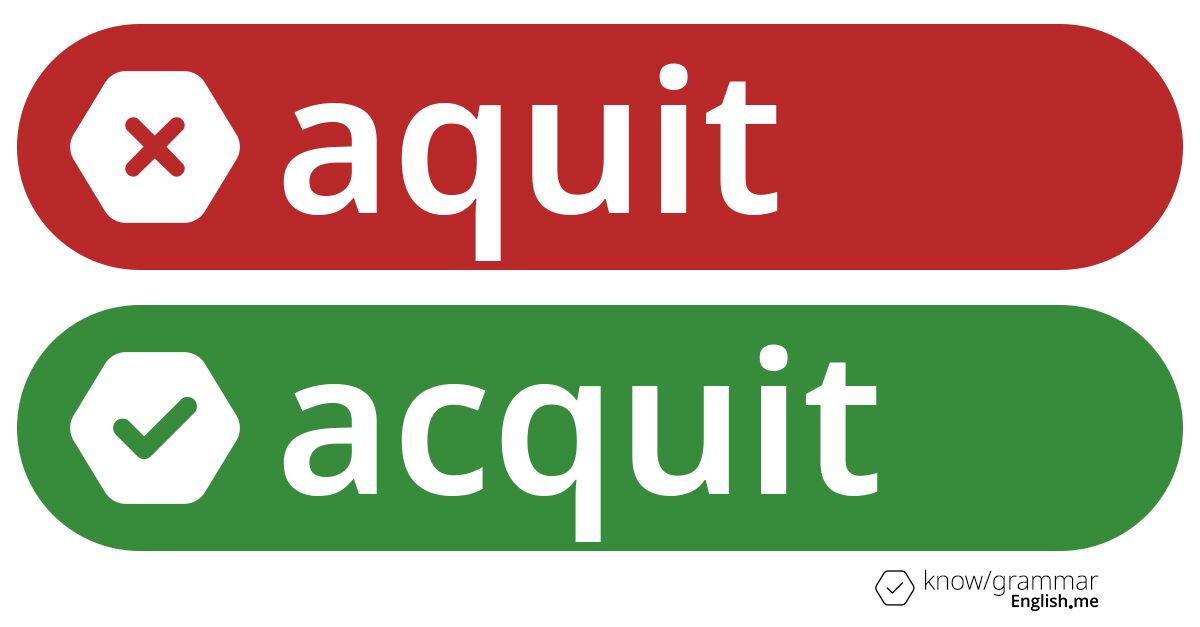Why "aquit" isn't quite it
Reviewed and edited by  Lloyd Cooper 21/12/2024, 15:31
Lloyd Cooper 21/12/2024, 15:31
English.me team member
 What kind of error is it?
What kind of error is it?

Spelling error.
 Why do people make this mistake?
Why do people make this mistake?
Because the "c" in "acquit" is silent when pronounced, people often misspell it as "aquit". "Acquit" comes from the Old French word "acquiter" and the Latin word "acquitare", meaning "to settle" or "to pay off".
 What is correct?
What is correct?
"Acquit" is the correct spelling. It means to formally declare someone not guilty of a crime or wrongdoing, or to perform a duty or responsibility satisfactorily.
 Examples of correct usage
Examples of correct usage
- The jury decided to acquit the defendant of all charges.
- She acquitted herself well in the difficult exam.
- The board will likely acquit him after reviewing the evidence.

 English
English español
español française
française italiano
italiano deutsche
deutsche 日本語
日本語 polski
polski česky
česky svenska
svenska Türkçe
Türkçe Nederlands
Nederlands